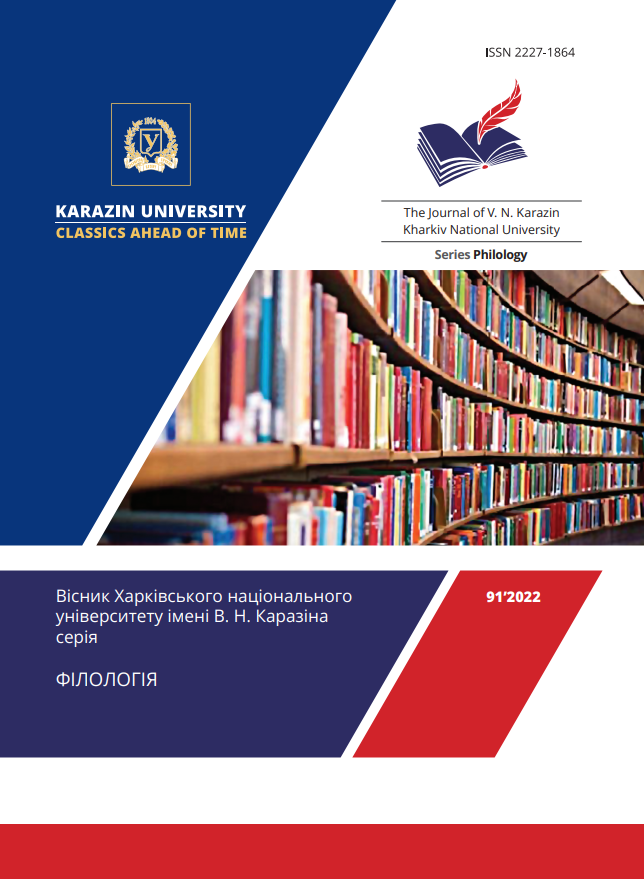Two dialogues of Skovoroda from 1783 about the struggle between good and evil and their biographical context
Abstract
The article attempts to reveal some probable biographical aspects of two artistic and philosophical dialogues of Hryhoriy Skovoroda, written in 1783: Archstrategist Michael’s Struggle with Satan and The Devil’s Controversy with Varsava. The dedication of the first work to Mykhaylo Kovalyns’kyy and the later preface to this dialogue could have been inspired by the family tragedy of the Kovalyns’kyy couple – the death of their young son. It is probably not by chance that H. Skovoroda addressed the theme of the Resurrection three times in the preface, persistently reminding that the death of the body is not the end of human life, but only a rough appearance of the end. Everyone who crosses the threshold of apparent death actually passes to a new life, so the father of the dead son had to believe that in time he would meet his beloved child again, and already forever. The second dialogue is perhaps the most autobiographical in H. Skovoroda’s writings. The lines of both protagonists of this work (Daimon and Varsava) sound like the inner voices of the author of the dialogue. At the same time, according to one of the hypotheses, the prototype of Daimon can be considered not just some abstract force of doubt that was either outside the soul and consciousness of H. Skovoroda, or within his rational understanding of the metaphysics of the universe, but a specific person – Samuyil Myslavs’kyy, a younger friend of H. Skovoroda during the years of study at the Kyiv Mohyla Academy, and later the bishop and head of the Kharkiv College, because of whom, perhaps, the “official” pedagogical career of our philosopher ended forever. In general, the issue of the biographical “fullness” of certain prose works of H. Skovoroda is extremely complex and debatable in Ukrainian literary studies. Perhaps the versions highlighted in the article will somewhat bring the two “heavenly” dialogues of 1783 closer to their “earthly” reader’s perception.
Downloads
References
Zhytec’kyj P. (1987). Vybrani praci. Filolohiya. Kyiv: Naukova dumka. 326 p.
Istoriya ukrayins’koyi literatury (2014): U 12 t., t. 2. Davnya literatura (druha polovyna XVI – XVIII st.). Kyiv: Naukova dumka. 839 p.
Svyate Pys’mo Staroho ta Novoho Zavitu (1963) / V perekladi I. Khomenka. Rym: Vydavnyctvo OO Vasyliyan. 1464 p.
Skovoroda H. Povna akademichna zbirka tvoriv (2011) / Za red. prof. L. Ushkalova. Kharkiv–Edmonton–Toronto: Majdan; Vydavnyctvo Kanads’koho Instytutu Ukrayins’kykh Studij. 1400 p.
SkovoroDAR. Zhyttya, tvorchist’, spadok: zbirka tvoriv (2022) / ukl. N. Fedorak. Kharkiv: VD «SHKOLA». 416 p.
Ushkalov L. Hryhorij Skovoroda: seminarij (2004). Kharkiv: Majdan. 776 p.
Ushkalov L. Lovytva nevlovnoho ptakha: zhyttya Hryhoriya Skovorody (2017). Kyiv: DUKH I LITERA. 368 p. (Seriya «Postati kul’tury»).
Chopyk R. Vid Skovorody do Shevchenka (2017) (rukopys monohrafiyi, pidhotovlenoyi ta rekomendovanoyi do druku na zasidanni Vchenoyi rady L’vivs’koho nacional’noho universytetu imeni Ivana Franka). [L’viv].




